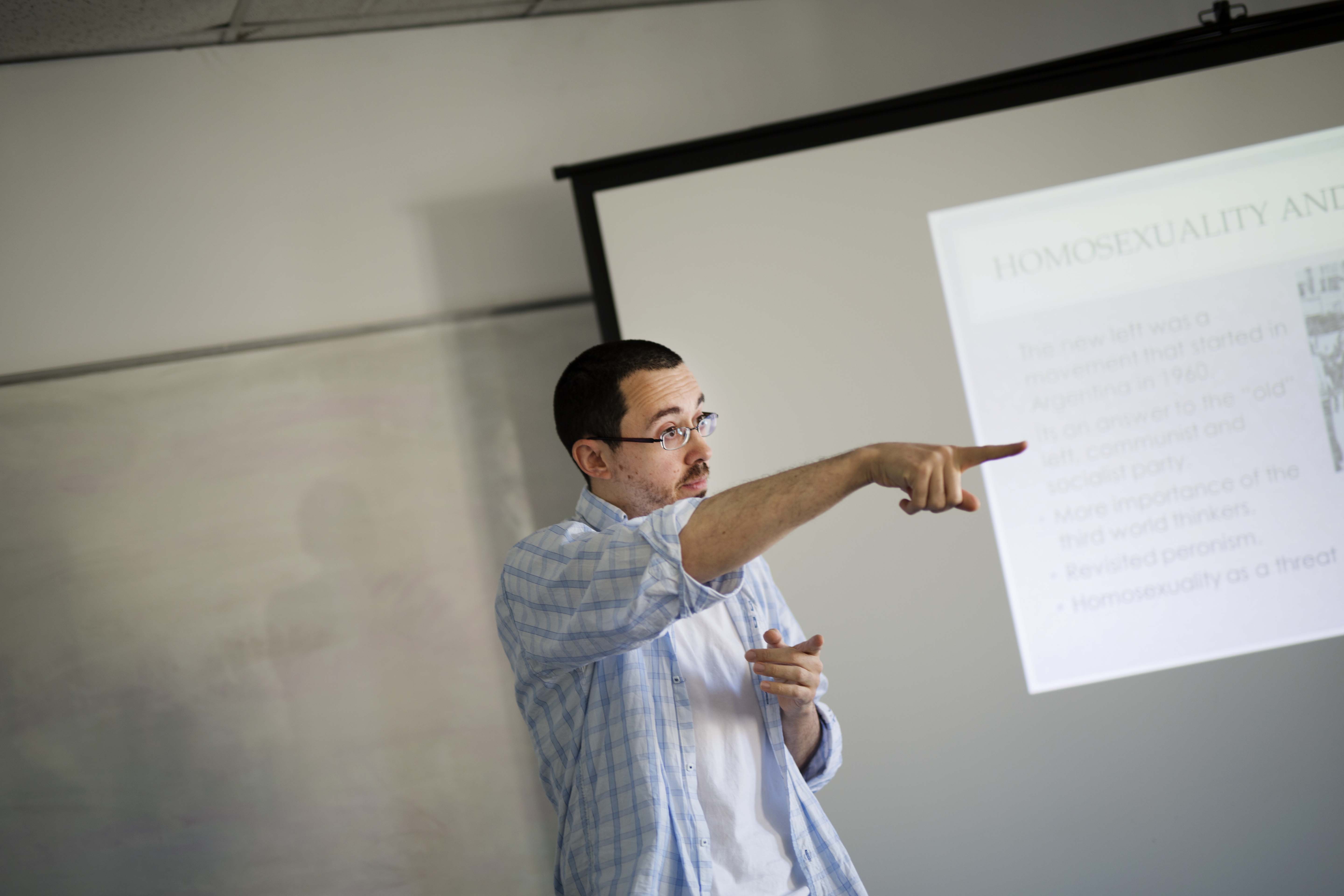Interview with Prof. Inchauspe about Argentinian Literature
My name is José Luis Inchauspe, my area of study is Literary Theory and Analysis, an area of the "Letters" degree at the University of Buenos Aires, and I have now been with Kulturstudier for more than 10 years. During this time the objective (with respect to literature) has been to be able to provide the necessary tools so that those interested can become “active readers” (as opposed to “passive readers").

For a student reading the course description, it might seem as if the subject of Argentinian literature involves a great deal about the history of Argentina as well. Could you explain in what way this subject differs from the subject “Argentinian Culture and History”?
Literature itself, like any type of cultural and artistic process, has its foundational bases in all human social activity, which obviously includes history. Our course begins with a key question ("what is literature?") for which we will rehearse different proposals and ideas during the semester.
As our program focuses on "the construction of the Other" within Argentine literary texts, during the first part (3 weeks) there is a very superficial outline of the beginnings of Argentina (focused on migration processes, the growth of the city, the rise of Peronism and the military dictatorship). That is, we see a context in which basic problems of the country arose that were later reflected in literature from different perspectives. After those 3 weeks you begin to see social issues (such as the construction of women, or that of "outcasts") to finish with the definition of that first question about "what is literature?".
At the end of the course, every student will have received tools for critical analysis, a greater understanding of Argentine literature (and universal, why not), and will be able to see how the narrators, characters and stories were constructed within Argentine literature itself.
On the contrary, in "Argentine culture and history" the centre of everything is the historical processes and the culture that was formed with them. The "umbrella term" culture encompasses points beyond literary texts (such as music, cinema, traditions themselves) but without providing analysis tools for them.
Is there a specific significance of the literature in Argentinian history and identity?
Literature is not only created by culture, but is a culture creator itself. Not only that: being a fundamental part of the life of a country, it is also where the different social views, fears, passions, and ideologies of a nation are catalyzed. Argentine literature has accepted, like much of Latin American literature, a non-passive role within the social events that took place in our country, it has been built as a mimetic force ready to face the conflicts that occur within the country. To read Argentine literature is to read the internal conflict that lies behind a masquerade of tango and football.
What is your favourite part about teaching this subject? Do you have a favourite part of the course?
Gladly, I enjoy the entire course, but if I have to choose a part that I like the most, it would be not so much the first part (the historical part) as the other two three parts. This is because the texts necessary to work (during that first part) may be "old" for today's written forms, and, therefore, distant in their approach. However, we are talking about essential texts in an Argentine literary program designed for foreigners.
Lastly, in order for students to understand you, in relation to the subject, what is your favourite Argentinian work and why is it your favourite?
Asking a literature lover "what is your favourite work?" It's similar to asking a sweet tooth "what's your favourite candy?" It is impossible to select one among such a variety of options, among so many particular voices, among so many variables; but, to be more pragmatic, I could say that 100% of the texts selected for each unit were not done by chance, on the contrary, they are authors that I consider elementary, fundamental and even indispensable in our literature.
Any other comments you might find relevant for students wishing to study in Argentina through Kulturstudier?
The best thing about studying in Argentina is understanding that culture, history, literature and, of course, the language that they are going to study will not be, in these "pampas", a theoretical element but that they will be able to experience what they are learning through their day-to-day life.
